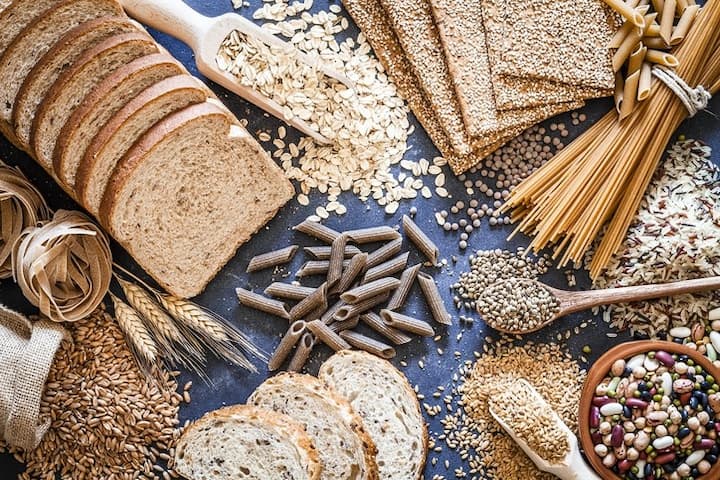Do you feel beaten down and exhausted at the end of a long day? Having trouble finding the time to cook a nutritious meal? As much as we all wish we could be health nuts who cook every meal from scratch, the reality is that sometimes life gets in the way.
From running errands to working long hours, there are days when it seems impossible to find the time to make a healthy meal. That’s where protein bars come in. They’re the perfect quick snack for when you need a quick boost of energy.
What to Look for In a Protein Bar?

Not surprisingly, delicious bars rich in protein may vary in their ingredients, calories, and macronutrients. Not only is this frustrating when you’re trying to compare different options, but it also makes it hard to know what you should be looking for. Here are a few base ingredients that most quality protein bars have in common:
Protein Content
As you’d expect, this is the pillar ingredient found in these kinds of supplements. But, how much of it is actually found in each bar? Well, it usually accounts for at least 20% of the energy in bars high in protein.
You’ll be able to find more information on the contents from the label. To give you a better idea, a bar would need to have at least 20g of protein in every 100g if it had 400 kcal. That would be 10g of this ingredient for a 50g supplement.
The protein content is one thing, but its and the related amino acid profile are yet another equally important consideration. This affects how our body uses them, such as whether the amino acids are largely used for connective tissues or the development of muscles.
Similarly, the source of the protein affects how readily it’s absorbed by the body. Therefore, if you aren’t a vegan a bar made primarily of milk protein will provide a wide range of amino acids. It includes every important amino acid in practically the perfect proportion.
However, if you want to gain muscle you should avoid beef collagen as it’s primarily present in connective tissues and is more recommended for those who want to take care of their joints, enhance the quality of their hair or nails, or make their skin more elastic and less prone to wrinkles.
Carbohydrates
You should pay close attention to the amount and sources of carbs in addition to the protein. Consequently, 10 to 25 g of carbs every 60 g would be ideal. This means that for a bar with 400 kcal in 100g, the percentage of carbohydrates is between 17 and 42%. You are guaranteed to find a bar that best fits your intake because the range of carbohydrate content in the bars on the market is significantly greater.
But, you don’t want a protein bar loaded with sugar without any complex carbohydrates to fill you up, do you? Therefore, you should opt for simple sugars or complex carbohydrates.
The former gives sweetness, but they shouldn’t be the majority of the bar’s carbohydrates. These include syrups made of glucose, fructose, or both. While, the latter is slowly released, filling you up for longer. Examples include different types of oats, flour, or starch.
Fats

The macronutrient with the highest energy value is fat, which provides about 9 kcal per 1g. This means that the ultimate calorific value of the protein bar is quite significantly influenced by its content.
As a result, about 5–10g of fat is present in a smaller, 60g bar, which is fine. However, if you choose a bar made for a particular eating regimen, such as a ketogenic or low-carb diet, the fat content will typically be higher at the expense of carbohydrates.
Even with fat, you probably won’t be astounded by the fact that protein bars have a variety of high-quality sources. We mostly take into account unsaturated fats when we think of the ones that are good for our health. These often originate from vegetable sources including cocoa beans, nuts-except coconut, seeds, canola oil, olive oil or flaxseed oil.
Fibre

The rate at which a protein bar’s constituent parts are absorbed is significantly influenced by fibre. It helps with fullness and is also essential for a healthy digestive system.
Look for something that’s high in fibre if you want to feel fuller for longer. A typical 60g bar should have at least 3.6g of chocolate. However, you may frequently find bars with up to 10g of fibre, which can make it even easier for you to consume the recommended amount each day.
On the other hand, high fibre content is not preferred if you are taking this supplement as a post-workout snack since you want to get the protein in it to the muscle fibres injured by training as rapidly as possible.
Nutrient absorption would be needlessly slowed, and tired muscles would have to wait a long period for energy. So it is best to choose protein bars with less fibre after a workout.
When Is the Best Time to Eat Protein Bars?
Post-workout is the ideal time to get your daily intake. This macronutrient is essential for muscle growth and repair, particularly after the strenuous activity of weight training.
A protein bar consumed immediately after a workout will help to replenish your glycogen stores, reduce muscle soreness and promote muscle growth. It is also the perfect time to take a supplement with a higher calorie content as your body will be more likely to use these calories for energy and repair, rather than storing them as fat.
Additionally, it will be an excellent way to receive a “protein top-up” if you are going to consume it for more than 4 hours between meals. However, you should eat it one to two hours before working out to guarantee that you have metabolized everything your body requires and can exercise without having recently eaten.
Can You Have Protein Bar With Other Supplements?
Depending on your demands, you can mix and match your supplements to achieve greater results. They normally don’t interfere with each other, but if you are unsure, always check with your health professional first.
For example, taking post-workout supplements such as BCAAs or creatine with your protein bar can enhance their effects. This is because both BCAAs and creatine help to increase muscle mass, so combining them with protein will result in even more gains.
Who Should Eat Protein Bars?
These dietary supplements are not just for athletes or bodybuilders. If you live a busy lifestyle and often find yourself skipping meals, protein bars can help to keep your energy levels up and curb your appetite until you have time for a proper meal.
They’re also a good option for vegetarians or vegans who may struggle to get enough protein from their diet. By choosing a plant-based protein bar, you can get all the benefits of this macronutrient without having to consume meat or dairy products.
However, children and adolescents should not consume protein bars unless recommended by a doctor or dietitian, as their bodies are still developing and they may not need the extra protein.
Pregnant women and nursing mothers also need to be careful when consuming protein bars, as they could unintentionally increase their calorie intake, which could lead to weight gain. If you are pregnant or breastfeeding, talk to your doctor before adding protein bars to your diet.